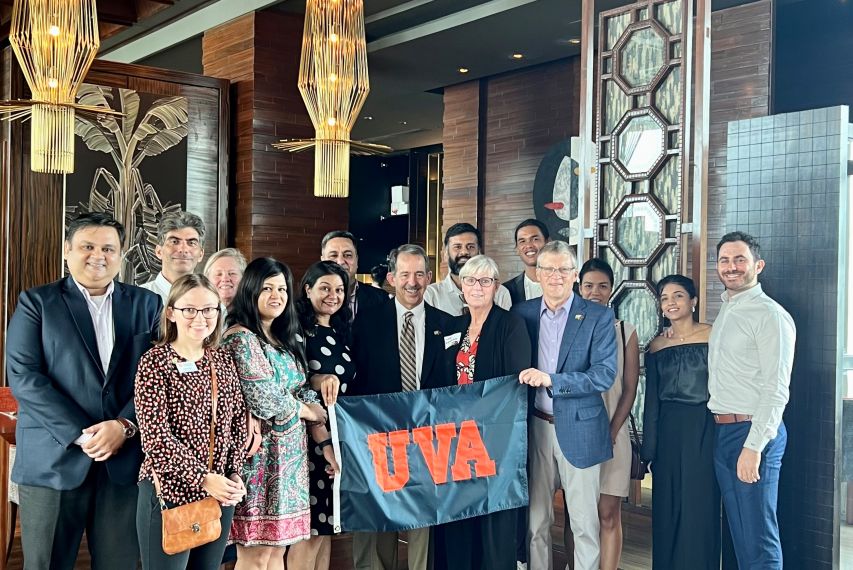In September, six UVA leaders and I participated in a weeklong U.S. government-sponsored mission in India to explore new opportunities for higher education engagement in the world’s largest democracy.
Representatives from the Provost’s office, the International Studies Office, the Engineering School, Admissions, McIntire, and Advancement visited Mumbai, Bengaluru, and New Delhi for meetings with about 20 universities, participated in two college recruitment fairs that attracted thousands of prospective students, and met several dozen alumni and other friends of UVA.
During our visit to India, we discovered a remarkable range of opportunities of potential interest and benefit to UVA even beyond our already successful engagement in India with the Yamuna River Project, which has won multiple international awards for its innovative research into repairing the environmental damage to India’s second largest river.
India’s leading STEM universities are eager to partner with UVA’s Engineering and Data Science Schools to develop programs in which their most promising undergraduates would pursue graduate degrees at UVA and further joint research. Other undergraduate universities are willing to host a range of UVA students on short-term “India Immersion” programs that could engage our students in the study of rural environmental sustainability issues, community health projects, micro-lending programs, and south Asian culture.
Still others offer short-term business immersion programs that explore environmentally sustainable business models and small, family-led, and start-up businesses.
As the world emerges from the COVID-19 pandemic, it is clear that India is poised at the forefront for higher education engagement with the U.S. According to one recent survey published in the “Chronicle of Higher Education”, the number of first-time Indian graduate students grew by 430% from fall 2020 to fall 2021, a growth rate more than ten times higher than the increase over the same period from China, traditionally America’s largest source of international graduate students.
The “Chronicle” further reports that this past summer, the U.S. mission in India issued 84,000 student visas to Indian students, which amounts to a 45 percent increase than than during summer 2021 and a 148 percent increase since before the pandemic in the summer of 2019. As was clear from our interactions with the excited throngs of prospective students and their parents at the college recruitment fairs we attended, the Indian middle class is booming and eager to send its children to college in the United States.
At the same time, India’s increasingly prosperous private sector is funding an explosion in private universities that are quickly ascending the international rankings with groundbreaking research in community health, artificial intelligence, biotechnology, business, and environmental sciences.
And the Indian government’s newly launched National Education Policy (NEP) promises to liberalize previously challenging obstacles to international education engagement, including a substantial easing of barriers to the work of international universities within India.
One of India’s leading private Universities, Delhi’s OP Jindal Global University, seems like an especially promising partner for UVA. Founded in 2009 under the leadership of Professor Raj Kumar, a Rhodes Scholar and graduate of Harvard Law School, the University has grown today to include 12 schools, including one of India’s best law schools and other schools devoted to public health, the humanities, architecture, and public policy, among others with a significant number of international faculty.
We will host Professor Kumar and a delegation of five of his Deans in mid-November to explore establishing a closer relationship to develop study and research opportunities for both our students and faculty.
After the pandemic’s bleak two years of depressed engagement in global higher education, it is invigorating to discover the booming possibilities in India. I invite you to join us as we look to expand opportunities for our students and faculty in this emerging new education powerhouse in the global South.
Stay Global!




